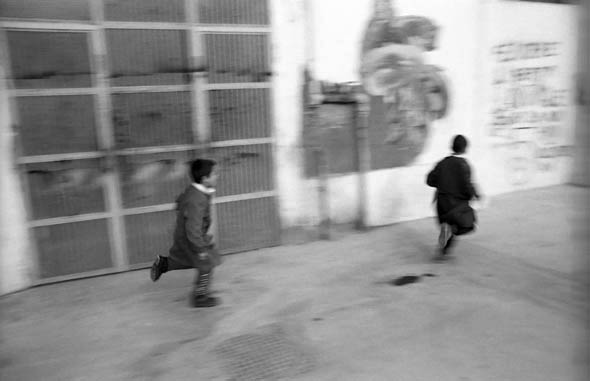Almost everyone I spoke to about the circus said the same thing: “The circus is so sad…”
And I even heard this from people who live in the circus.
There’s some truth to this. It is a life of hard work, a nomadic existence in which family destiny plays an important role, far greater than in the lives of the rest of us.
It is a place populated by sensitive souls, and for this reason, like all human endeavors, it has its dose of sadness, but also of happiness, silence, boredom, labor, fun, danger, and solitude. It is also a complex universe, filled with poetry and magic, composed of exceptional artists, extraordinary people, superb athletes: a strange mix of talent and a simplicity which is sometimes overwhelming.True art.
It is a microcosm that swings back and forth between two poles: a dream made of seemingly impossible ambitions that challenge all human capabilities, intensified by stage lights and music and the ingratiating words of the circus master, which evokes an imaginary world; and then, suddenly, the revelation of humanity, of an existence even more difficult than that of most people. This reality reappears insistently – like an awakening from a dream- as soon as the curtain is opened on this world marked by the unforgettable smell of sawdust, hay, animals, and diesel fuel.
“I find that I am trying to recall old photographs of myself, just to remember what I look like.
I discover with a shock that I cannot remember. Must I become a blank on the wall of my own gallery?”
(Touching the Rock: An Experience of Blindness, John M. Hull)
An instant of loneliness and darkness, the eyelids beating when everything is faded and blurred. Lights spots and colours pass by without a real meaning, emphasizing how hard an objective relationship with the real is.
We often speak of the clash of civilizations and religious wars. In the last few years, because of globalization and the quick exchange of ideas and news, everything seems to be closer to us and in conflict with our own culture. We haven’t yet finished thinking and debating one issue before another emerges and plunges our faith, society and culture into the same cauldron.
We forget that knowledge can be a way towards tolerance and the acceptance of differences, and we allow politics, supported by the media, to use religion as a means to achieve its goals often based on evident forms of discrimination.
The principles of respect and equality are necessary in an open society, in which there is a rapid circulation of opinions and of people. It is necessary for non-believers as well.
Photography, more than video, possesses both the qualities of immediacy and slowness: it allows itself be contemplated without dictating a duration, it allows time to think, brings the relationship between the object and the spectator back to a more human dimension.
“…in front of the screen, I am not free to shut my eyes; otherwise, opening them again, I would not discover the same image; I am constrained to a continuous voracity; a host of other qualitites, but not pensiveness…”
(Camera Lucida, R. Barthes)
This is a series of portraits, close-ups, all taken with the same lighting technique and framed in the same manner in order to place all religious beliefs on the same level with equal dignity. One after the other, the eyes of men express their need for respect.






